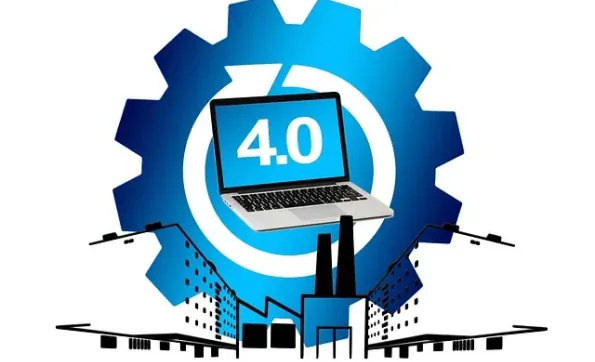The advent of Industry 4.0 marks a significant shift in manufacturing, integrating advanced technologies such as Artificial Intelligence (AI), Machine Learning (ML), and the Internet of Things (IoT) into traditional practices. This transformation aims to create highly interconnected, data-driven factories with dynamic response capabilities, optimized processes, and predictive maintenance. As manufacturers embark on this journey, understanding the blueprint for building secure digital factories is crucial. By leveraging these cutting-edge technologies, manufacturers can unlock new levels of efficiency, productivity, and resilience, ensuring they remain competitive in an increasingly digital world.
The Evolution of the Industrial Revolution
To appreciate the impact of Industry 4.0, it’s essential to revisit the earlier stages of the industrial revolution. Industry 1.0 initiated mechanization through steam power, fundamentally changing manufacturing from manual labor to machine-driven processes. This shift laid the groundwork for subsequent advancements and marked the beginning of the industrial era. The transition from manual to machine-driven production revolutionized industries, leading to increased productivity and the birth of modern manufacturing.
Industry 2.0 introduced mass production, leveraging electricity and assembly lines to lower production costs and make goods more accessible. This era saw the rise of large-scale manufacturing and the standardization of products, which significantly boosted productivity. The widespread adoption of assembly lines enabled manufacturers to produce goods at unprecedented speeds and volumes, paving the way for a consumer-driven economy. This phase also marked the beginning of specialization and the development of new management practices to oversee complex production processes.
Industry 3.0 integrated automation with the aid of electronics and computational technologies, improving precision and reducing manual labor. This phase brought about the use of programmable logic controllers (PLCs) and robotics, setting the stage for the data-driven innovations of Industry 4.0. The introduction of computers and automation technologies allowed for more efficient and precise production processes, reducing human error and further enhancing productivity. As a result, manufacturers could produce high-quality products at lower costs, meeting the growing demands of global markets.
The Core of Industry 4.0: Data-Driven Manufacturing
Industry 4.0 is all about data. Manufacturing processes generate vast amounts of data, which hold significant potential for insights to improve quality, efficiency, and uptime. The secure digital factory is conceptualized as a framework of securely integrated systems and technologies allowing manufacturers to extract and harness data effectively. In this new era, data becomes the lifeblood of manufacturing operations, driving continuous improvement and innovation. By leveraging data-driven approaches, manufacturers can gain a deeper understanding of their processes and make informed decisions to optimize performance.
Real-time data and predictive analytics facilitate enhanced decision-making, waste reduction, and improved Overall Equipment Effectiveness (OEE). By leveraging data, manufacturers can foresee and mitigate failures before they occur, ensuring smoother operations and reduced downtime. The ability to predict potential issues and address them proactively can save significant costs associated with unplanned downtime and maintenance. Additionally, data-driven insights can help identify areas for process optimization, leading to more efficient use of resources and increased operational efficiency.
The integration of IoT devices enables continuous monitoring of equipment and processes, providing valuable data that can be analyzed to optimize performance. AI and ML algorithms can then process this data to identify patterns and predict potential issues, allowing for proactive maintenance and minimizing disruptions. IoT sensors and devices collect real-time data on various parameters, such as temperature, pressure, and vibration, giving manufacturers a comprehensive view of their operations. This data can be used to optimize machine performance, improve product quality, and reduce energy consumption, ultimately leading to a more sustainable and competitive manufacturing environment.
Building the Secure Digital Factory
The journey towards a secure digital factory is akin to building a complex house extension. Manufacturers recognize the end goal but may lack clarity on how to start and proceed. This journey necessitates integrated technology domains, robust data acquisition platforms (like SCADA systems), secure data transport mechanisms, and cloud data ingestion platforms. Each of these components plays a vital role in ensuring the seamless flow of data and the secure integration of various systems and technologies within the digital factory. As manufacturers embark on this journey, they must carefully plan and execute each step to build a robust and secure digital infrastructure.
A critical emphasis is placed on securing the data pipeline, given that any data loss translates into lost insights. Ensuring data integrity and confidentiality is paramount, as compromised data can lead to incorrect decisions and operational inefficiencies. Implementing strong encryption and access controls can help protect sensitive information from unauthorized access. To mitigate the risk of data breaches, manufacturers must adopt a multi-layered approach to security, including network segmentation, intrusion detection systems, and regular security audits. By prioritizing data security, manufacturers can build trust with customers and stakeholders, reinforcing their reputation for reliability and safety.
Machine Learning models need to be meticulously trained and optimized to maximize predictive value. This involves continuous monitoring and updating of models to ensure they remain accurate and relevant. Collaboration with experienced technology partners can provide the necessary expertise to design, implement, and sustain these integrated systems. These partners bring specialized knowledge and skills to the table, ensuring that the deployment of AI and ML technologies is seamless and effective. Their expertise in data science and machine learning can help manufacturers derive maximum value from their data, driving continuous improvement and innovation.
The Role of Technology Partners
Experienced technology partners play a crucial role in facilitating the transition to Industry 4.0. These partners bring specialized knowledge and skills to manage components like SCADA software and industrial control systems. Their expertise ensures that the integration of new technologies is seamless and effective. By working closely with technology partners, manufacturers can leverage their experience to navigate the complexities of digital transformation and build secure, data-driven factories.
For instance, Nasstar’s collaboration with Jaguar Land Rover to design a data platform that derives actionable insights from vehicle data is a prime example. This partnership enhanced competitiveness and efficiency by leveraging data to drive decision-making and optimize operations. By collaborating with technology partners, manufacturers can gain access to cutting-edge solutions and best practices, enabling them to stay ahead of the curve and maintain a competitive edge in the market. These partnerships also provide valuable support and guidance throughout the implementation process, ensuring that the digital factory operates smoothly and securely.
Collaborating with technology partners also helps manufacturers stay updated with the latest advancements and best practices. These partners can provide ongoing support and maintenance, ensuring that the digital factory remains secure and efficient over time. As technology continues to evolve, having a reliable partner can help manufacturers adapt to new developments and leverage emerging technologies to drive continuous improvement. By fostering strong collaborations with technology partners, manufacturers can build a solid foundation for their digital transformation journey and ensure long-term success.
Addressing Security Concerns
While the technological and integration aspects of Industry 4.0 are critical, security cannot be overlooked. Transitioning to Industry 4.0 without addressing security implications is akin to leaving a newly built house extension with the front door open. Securing the infrastructure to be “secure by design” is essential to protect against cyber threats and data breaches. Manufacturers must implement comprehensive security measures to safeguard their digital factories and ensure the integrity and confidentiality of their data. By adopting a proactive approach to security, manufacturers can mitigate risks and build a resilient and trustworthy digital infrastructure.
Manufacturers must implement comprehensive security measures, including network segmentation, intrusion detection systems, and regular security audits. Employee training and awareness programs are also vital to ensure that all personnel understand the importance of security and follow best practices. By fostering a culture of security, manufacturers can reduce the risk of human error and ensure that all employees are vigilant and proactive in protecting sensitive information. Additionally, staying informed about the latest security threats and trends can help manufacturers adapt their security strategies to address emerging risks and vulnerabilities.
By prioritizing security from the outset, manufacturers can safeguard their digital factories against potential threats and ensure the integrity and confidentiality of their data. This proactive approach to security will help build trust with customers and stakeholders, reinforcing the factory’s reputation for reliability and safety. As cyber threats continue to evolve, manufacturers must remain vigilant and continuously update their security measures to stay ahead of potential risks. By adopting a holistic approach to security, manufacturers can create a secure and resilient digital environment that supports their Industry 4.0 initiatives and drives long-term success.
Embracing the Future of Manufacturing
The dawn of Industry 4.0 signals a major transformation in manufacturing, combining advanced technologies like Artificial Intelligence (AI), Machine Learning (ML), and the Internet of Things (IoT) with traditional methods. This shift is aimed at developing highly interconnected, data-driven factories that possess dynamic response abilities, optimized processes, and predictive maintenance strategies. The integration of these technologies results in what are known as “smart factories,” which are capable of adapting quickly to changes, improving overall efficiency, and predicting equipment failures before they occur.
As manufacturers venture into this new landscape, it’s essential to understand the blueprint for constructing secure digital factories. This involves implementing robust cybersecurity measures to protect sensitive data and ensure the smooth operation of automated systems. By leveraging the latest advancements, manufacturers can achieve unprecedented levels of productivity, efficiency, and resilience. These innovations not only streamline production processes but also give companies a competitive edge in the ever-evolving digital marketplace. Embracing these technologies allows businesses to not only survive but thrive, maintaining their relevance and competitiveness in an increasingly digital global economy.













